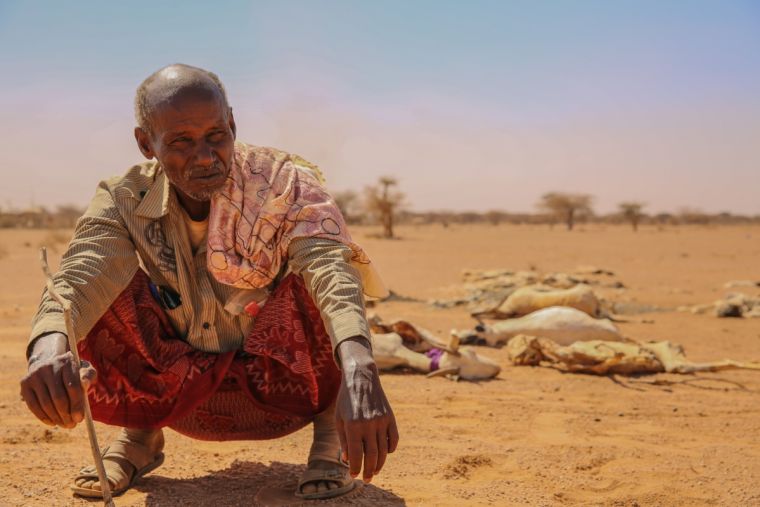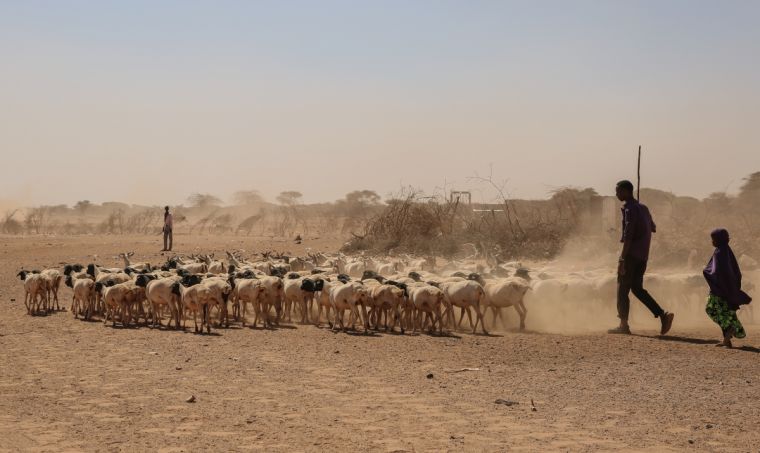Why Being On Donald Trump's Travel Ban Is The Least Of Somalia's Worries
Seven countries came under Donald Trump's travel ban.
Perhaps the least well known – the one that has attracted the least attention – is also facing a famine for the second time in six years, according to the United Nations.
Somalia is in a state of "pre-famine", the UN's food and agriculture organisation (FAO) said last week.
The majority of the population now need emergency aid and the number of people needing urgent humanitarian assistance has shot up by more than a million in the past month alone.
There is also a "milestone" election happening this week after the east African country has drifted for more than 25 years without a functional central government.
But despite all this Somalia languishes beneath the radar as it trudges towards disaster.

"People's livestock are dying and they worry they will be next," says Stefanie Glinksi, field manager for the Christian charity World Vision.
In an interview with Christian Today, Glinksi, who has just returned to the UK from the country, describes one farmer, Said, who has seen his herd of goats deplete from more than 200 to less than 50.
"When I met him he was very depressed," says Glinksi.
"He was outside burning his dead goats. He said this is something he has been doing every day for the last two months."
Along with thousands of others Said, who has 14 children, packed his family, their empty water buckets and his entire life onto a camel and went in search of water and more fertile land.
They walked about 80 miles but every day more of his goats died. So eventually he stopped at a small, diminishing waterhole.
"He told me he was worried his children would be next," says Glinski.
Now after two seasons without rainfall Somalians have nothing to plant. So even if the rains do come they will have nothing to eat.
And so millions are on the move – too consumed with a battle to survive to pay attention to the battle for power that wages among the country's elite.
"It usually starts with people migrating to different areas of the country," says Glinski. "They go to different places to find more fertile lands.
"The second step is for people migrate to the cities.
"People are trying to get away from rural areas and go to the cities and live in slums where they hope they could find more water, more food and potentially work.
"And after that the tendency is for people to potentially leave their country."
But all that is thrown in jeopardy now. Somalians are not only victims of Trump's wholesale ban on refugees after he has stopped the US Refugee Programme. They also come under the travel ban along with citizens of Iran, Iraq, Libya, Sudan, Syria, and Yemen.

Without the option of joining family members or migrating to the US, Somalians are left to face the famine.
"If you look at this purely from a Christian perspective, everyone matters to God," says Glinski.
"I think if you look at churches and Christians generally they have played quite an important role n welcoming and resettling refugees from various parts of the world."
But although World Vision says it is "concerned" and "troubled" by the refugee ban, it insists its focus is helping those left behind.
It is appealing for £15.1 million ($18.5 million) to provide emergency care for more than half a million of the most severely affected.











